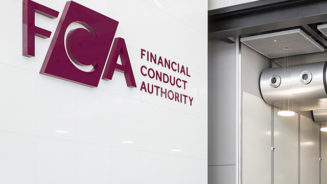At the OpesFidelio conference in Prague earlier in May, there was a discussion about the effects of Mifid II.
While some referred to it as a “game-changer”, much as the introduction of RDR in the UK proved to be, I referred to it as a “potential show-stopper” for many adviser firms and was quoted as such.
Since then, I have had a number of calls about this from advisers all across Europe, to such an extent that I identified with the little boy in the story of the Emperor’s New Clothes.
Rather than recognise that commission, like the Emperor’s non-existent clothing, will be fully transparent, advisers have not realised that the product providers will be the first to tell the Emperor (the client) the truth!
Will this cause the same sense of shock to advisers as it did to the Emperor’s subjects?
I think it will and I will explain why – it is all to do with transparency.
MiFID II
It is all about euros and cents (or pounds and pence). Gone is the ubiquitous 1% annual fee agreement with casual reference to product fees, fund fees and adviser charges.
The costs must be disclosed to the client in actual money terms, as well as percentages.
- All costs and related charges will be disclosed to clients. That means fund fees, commissions, wrapper/product fees and advice fees. In fact, the costs should be separately itemised so there is no possibility of hiding fees within fees;
- The client should now be able to understand the effects of these cumulative charges on the investment performance, and will quickly realise that they are not being charged 1%, but often including fund fees, more like 3% and that is before ongoing servicing; and,
- Point of sale disclosure is required, but the funds and platforms will need to provide this post-sale in any event and there will be direct cancelation periods sent to the clients’ address (or the trustees, but they have a legal responsibility to forward to the beneficiary).
Totality of costs
I think we have all heard of the notion of “free financial advice“, where the adviser was not required to disclose commission, but explain the product provider was paying them for giving the advice.
It is not just about telling the client what the adviser will earn, it is about the totality of all the costs; which is one big step further.
Clients, when confronted with stagnant performance, are going to question charges and if they are receiving no service, they are going to question firms seeking value for money like never before.
Are we sure of this?
Yes, as this is exactly what has been happening in the UK for some years now, and clients quickly move advisers and seek better service, especially at times of poor performance.
The future
The advisers that up their game, by being prepared for the changes, will flourish and we at OpesFidelio are already helping these kind of advisers with that transition backed by experience gained from the introduction of RDR in the UK.
Across our European network we already implement RDR-style procedures and efficient business models with investment planning, despite the fact that these are not yet required in most EU jurisdictions.
Those that do not change their game will find the curtain could come down on their show, earlier than expected.
The days of the high-earning commission-driven salesperson are limited by regulation and consumer awareness; enter the fee-based professionals.




